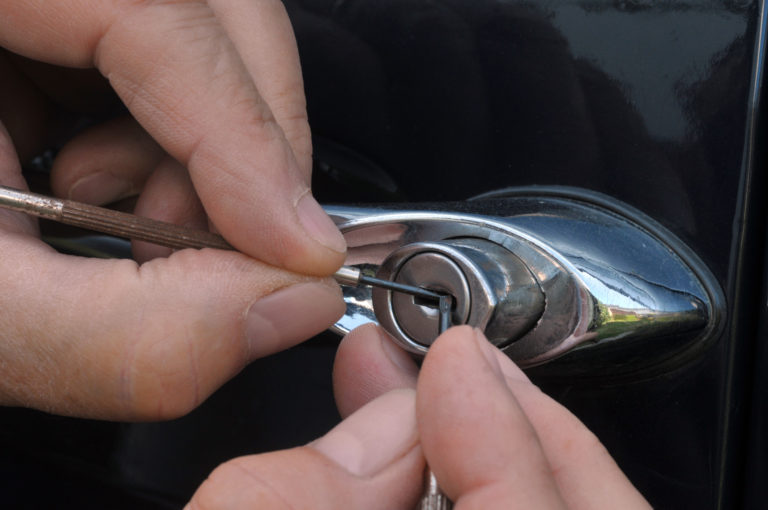In the car industry, one element has remained unchanged: the car key. However, this simple device has witnessed a lot of innovation. Today’s car keys range from basic mechanical ones to advanced smart keys, each offering different levels of convenience, security, and sophistication. Here are the main types of car keys and how they differ:
Mechanical Keys
For many years, mechanical keys have been the standard for car keys. These keys don’t have any electronic components; all of their functionality comes from physical mechanisms. They have all mechanical parts.
Characteristics
Usually constructed from metal with a particular cut pattern, mechanical keys are designed to align with the vehicle’s lock mechanism, allowing manual insertion into the door or ignition lock for unlocking or starting. They can be duplicated using key cutting machines available at locksmith shops or hardware stores.
Pros
Simple to use and operating without additional technology, mechanical keys boast resilience to water damage and technical failures, ensuring exceptional durability and reliability in various scenarios. Additionally, their replacement or duplication tends to be more economical than with advanced key types.
Cons
Mechanical keys are considered less secure than electronic options because they are simpler to pick or copy, lacking the electronic safeguards of their counterparts. Moreover, their manual operation can be less convenient than using a remote or smart key, particularly in scenarios requiring swift access.
Remote Keys
Key fobs, or remote keys, introduce electronic features into the traditional key configuration, facilitating remote operation of specific vehicle functions.
Characteristics
Remote keys integrate a small electronic remote with a conventional mechanical key, with the mechanical key occasionally housed inside the fob. They operate by wirelessly connecting to the vehicle’s locking system using radio frequency signals, facilitating remote functionalities like trunk access, locking, and car alarm activation.
Pros
Remote keys provide unparalleled convenience by allowing remote access to vehicles, eliminating the necessity for manual door locking and unlocking. Advanced security features such as rolling codes prevent signal interception and unauthorized access. Moreover, these keys incorporate flexible functionalities like panic alarm activation and trunk release, improving overall usability and safety for vehicle owners.
Cons
Remote keys depend on batteries for operation, necessitating regular battery replacements, and they can be susceptible to electronic interference or signal jamming, which may compromise security. Furthermore, due to their electronic nature, remote keys typically incur higher replacement costs than mechanical keys.
Smart Keys
With keyless entry and ignition capabilities, smart keys represent the most recent advancement in automotive key technology.
Characteristics
Smart keys feature an elegant, small fob design, often without a visible mechanical key, although some variants may incorporate a hidden one for emergencies. By detecting the smart key within a specified range, vehicles enable drivers to effortlessly unlock and start them without removing the key fob from their pocket or bag. Smart keys also offer keyless entry and ignition functionalities, seamless integration with vehicle entertainment systems, and customizable settings for different drivers.
Pros
With smart keys, you get the unmatched convenience of hands-free vehicle operation. These keys incorporate advanced encryption and rolling code technology, providing robust security against theft and unauthorized entry. Moreover, smart keys can be programmed for several drivers, each with their own personalized settings.
Cons
Since smart keys have sophisticated technology and possible areas of failure, maintenance and repair become more complicated. Because of their intricate features, they are frequently the most costly to replace or fix. Like remote keys, smart keys run on batteries; for them to function properly, the car’s sensors as well as the fob must be powered.
Need a locksmith? Don't Worry!
Our expert locksmiths are available 24/7. We're here to help with all your emergency lock needs. Don't hesitate, call us now!
The three primary types of car keys are mechanical, remote, and smart, each with unique benefits and drawbacks. Mechanical keys are conventional and dependable but lack remote features. Remote keys offer the convenience of accessing your vehicle remotely and typically include advanced security features such as rolling codes. Smart keys further enhance convenience with keyless entry and ignition, but they are more expensive to replace if lost.
As an automotive locksmith in Buckingham, PA, our focus is on delivering efficient and reliable solutions for various car key issues. We provide key replacement, duplication, and programming services to enhance vehicle security and convenience.
As automotive locksmiths in Buckingham, PA, we provide comprehensive services beyond key replacement and programming, crucial for vehicle security and convenience, including addressing challenges with ignition cylinders, door locks, and trunk locks.
In Buckingham, PA, we provide round-the-clock emergency automotive locksmith support because we understand the unpredictability of key emergencies and vehicle lockouts. Our rapid-response teams are always on standby to aid clients stuck at home, at their workplace, or while commuting.
Rapid emergency response is our first priority in order to reduce inconvenience and guarantee that our clients may securely continue their travels. In Buckingham, PA, if you’re looking for trustworthy automotive locksmith services, we’re ready to help with your vehicle problems. Reach out to us right now!

